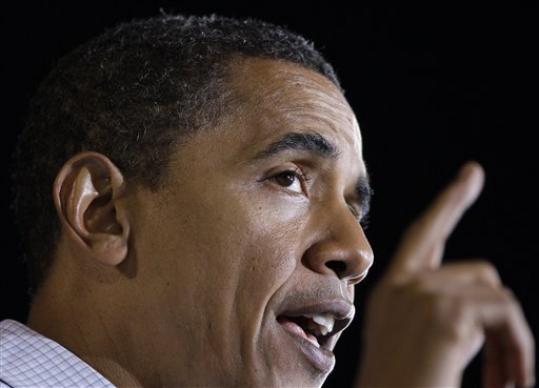Obama's Jakarta ties raise expectations in South-East Asia
 Jakarta - US president-elect Barack Obama's childhood years in Indonesia may provide him with a unique personal link to South-East Asia, but it remains to be seen how deep the old school ties go, analysts warn.
Jakarta - US president-elect Barack Obama's childhood years in Indonesia may provide him with a unique personal link to South-East Asia, but it remains to be seen how deep the old school ties go, analysts warn.
Obama, the first African-American to be elected president, can also claim to be the first US president to have spent almost four years of his childhood in the Indonesian capital, Jakarta, two years attending a public Muslim school and two more in a Catholic school.
"We hope Obama's victory will mark a new era in the relations between Indonesia and the United States, particularly in the defence and economic fields," said Yusron Ihza Mahendra, a member of the Indonesian parliament.
But given the economic crisis Obama faces in the United States, it is unlikely that boosting economic ties with Indonesia is going to be high on the new US president's priority list.
Most observers expect Obama to spend his first year in office concentrating on domestic issues, fulfilling some of the expectations of the Americans who voted for him, while maintaining the status quo with much of Asia.
"Most likely, Obama will maintain a status quo on the US economic, political and security policies in ASEAN (Association of South-East Asian Nations)," said Ben Lim, a political scientist and Asian studies professor at Ateneo de Manila University. "ASEAN is the fourth-largest trading partner of the US and he will most likely maintain the economic dominance of the US in the region."
What the region, if not the world, can reasonably expect from Obama is a change in approach to foreign policy from the unilateral diplomacy that characterized the George W Bush years.
"I don't think he will be a cowboy, riding a horse alone," ASEAN Secretary-General Surin Pitsuwan said of Obama.
"I don't think we'll hear from Obama that if you're not with me you're against me," said Surin, recalling Bush's notorious statement when launching his war on terrorism.
A new more multilateral approach to security and terrorism will be much welcomed in South-East Asia, home to 570 million people, about half of whom are Muslim.
"We hope Obama can change the US stance by adopting a more friendly attitude towards the Islamic world, including Muslims all over the world," Din Syamsuddin, chairman of Muhammadiyah, Indonesia's second largest Muslim organization, was quoted as saying by the state-run Antara news agency. "Obama needs a friendly approach to Muslim nations to improve the relations."
Obama, given his multi-racial, multi-religious personal background, is certainly starting out on a favourable footing.
"America, in an instant after November 4th, got a lot more power on the soft side," said Panitan Wattanayagorn, a political scientist at Chulalongkorn University.
"In one single day, militants all over the world can't make Obama a truly holy enemy," added Panitan. "He represents the US, but he himself as a person does not represent the Great Satan the way Bush was portrayed over the past eight years."
It is hoped that Obama will favour dialogue and a multilateral approach when dealing with sensitive issues such as terrorism, in contrast to the Bush years.
"I don't think Obama can escape it because he has to make sure he is different from the Republicans, otherwise what's the point of mentioning the word change for one million and five times," said Surat Horaohaikul, an international affairs expert at Chulalongkorn University.
One area of US foreign policy that is not expected to undergo too much change under Obama in South-East Asia is Myanmar, which is likely to remain under economic sanctions and criticism until some semblance of democracy is achieved in the junta-run state.
But even in Myanmar there is room for nuance.
"There may be a change in tone," said Win Min, a Myanmar affairs expert who teaches at Thailand's Chiang Mai University. "For example, Obama may be more willing to talk to regional powers, such as China, India and ASEAN, to find a compromise goal to work together for." (dpa)